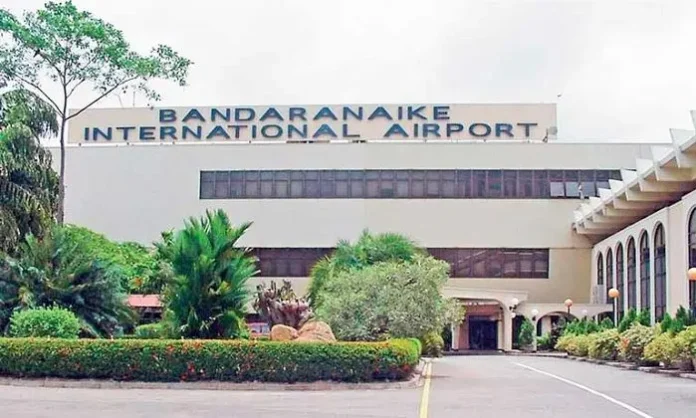By: Staff Writer
June 24, Colombo (LNW): Haskoning DHV Nederland B.V, a consulting engineering firm, has been appointed to draft the master plan for the expansion project of the Bandaranaike International Airport (BIA).
This master plan will concentrate on planning the future of the airport, taking into account capacity, efficiency, and passenger experience to ensure that it is able to accommodate more passenger traffic and meet Sri Lanka’s tourism objectives.
It will make the airport ready to cater to the expected increase in tourist movement, with a goal of welcoming 5 to 7 million rich-spending tourists by 2030.
This Dutch Company selected by an international tender will assess the effectiveness of existing infrastructure and technologies, as well as processes, human resources, and the regulatory framework, finance ministry sources revealed.
The Airport and Aviation Services (Sri Lanka) (Private) Ltd had cancelled the contract awarded previous company some times back for not following the contract’, and resumed the procurement process, Cabinet Spokesman Nalinda Jayatissa said.
However the on going BIA Phase II Stage 2- Package A1 project does not affect by this new development in the the Japan-funded expansion project.
This project, including the new terminal (Package A), is funded by JICA and aims to boost Sri Lanka’s aviation capacity. The Dutch company will be responsible for completing the construction of the new terminal building, piers, and associated works as part of the BIA Phase II project.
In a stunning turn of events, the Cabinet Appointed Negotiating Committee (CANC) has taken a monumental stand by disqualifying the Sojitz-L&T consortium, citing an invalid Power of Attorney – a move that has electrified public sentiment and revived hope in the integrity of Sri Lankan public service.
The catalyst for CANC’s decision is the bid submission’s Power of Attorney, which was revealed to be not attested by the local registrar, directly violating Sri Lankan procurement law – an offense considered so serious that technical disqualification is mandatory, as past precedents have shown
.Sources close to the CANC confirm: “they have correctly disqualified Sojitz, despite intense political pressure and last‑minute unethical efforts by vested interests.” This bold and lawful move is being hailed as a defining moment in Sri Lanka’s anti-corruption journey.
The technical evaluation committee extended tender deadlines to accommodate Sojitz-L&T-a clear sign of preferential treatment.
A damning letter surfaced from Welcome Hotels (ITC Group), which accused L&T of irresponsibly abandoning a major project mid-stream.
Sojiz previously withheld crucial legal history, including international arbitration against the Government of Sri Lanka and a disqualification from an Egyptian airport bid .
We reliably learn that the CANC has acted decisively, fully aware of the immense political and business pressure to bend the rules. Their refusal to cave has rekindled hope among the “right-thinking people” who yearn for officials who prioritize law and the public interest over influence and profit.
The tender for the construction of Phase 11 of the BIA project in 2025 was marred by controversy
The the BIA Phase II Stage 2 expansion project was,planned as a state-of-the-art terminal covering 180,000 square meters, a 210,000-square-meter apron, improved road networks, viaducts, and modern passenger facilities. But behind the impressive figures lies growing concern over irregularities in previous consultancy practices.
The initiative aimed to boost the capacity of the country’s sole international gateway in line with the surge in tourism and economic activity following the civil war.
Yet, amid yen loan agreements and final inspection procedures, the vision of streamlined global connectivity has been overshadowed by rising costs, alleged mismanagement, and mounting bureaucratic hurdles.

